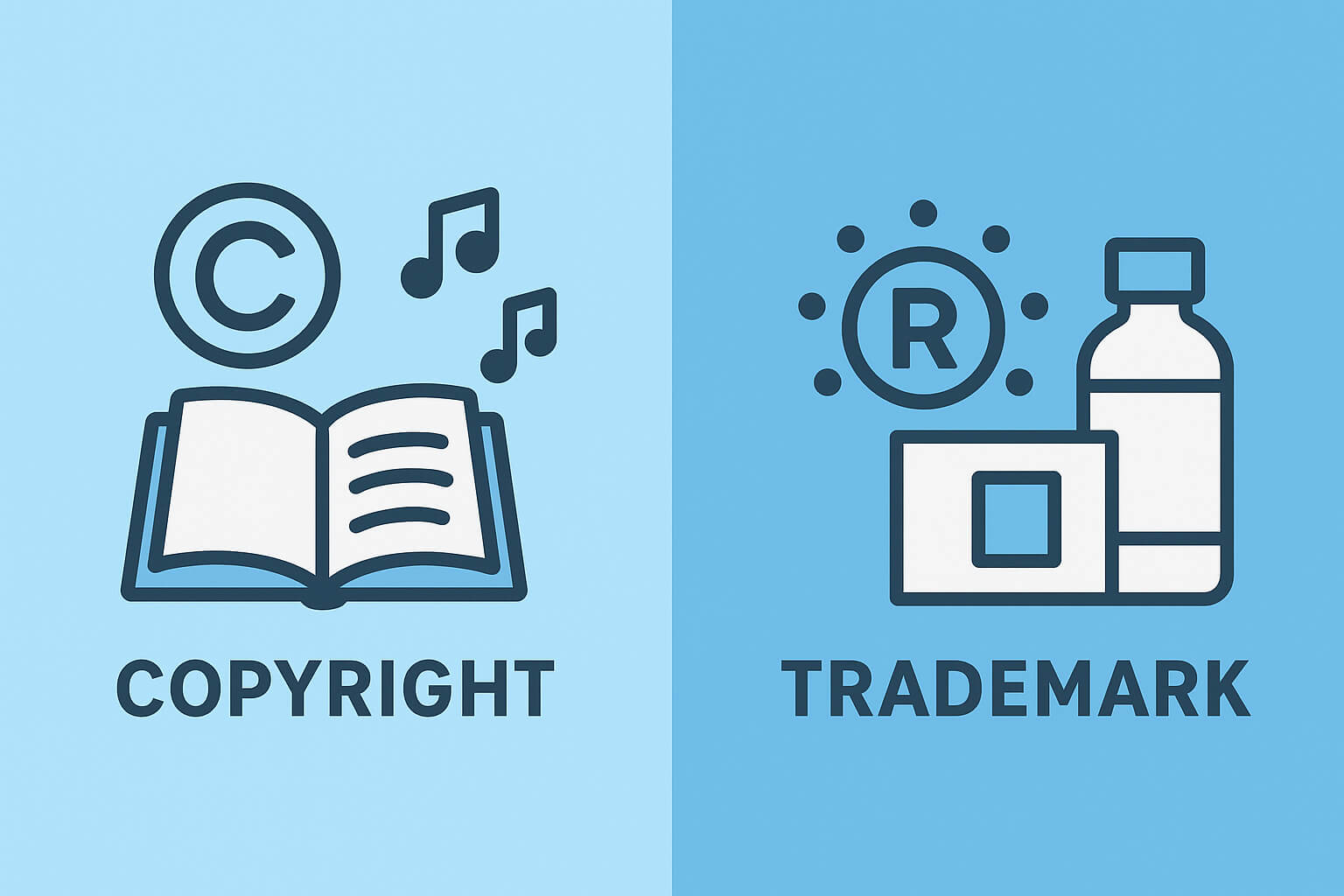Understanding Copyright vs. Trademark

Whether you're launching a business, writing a book, designing a logo, or building an app, your intellectual property is a valuable asset—and protecting it is essential. Two of the most common (and often confused) tools are copyrights and trademarks. While both offer legal protection, they serve very different purposes.
This guide breaks down the differences so you can better protect your work, your brand, and your future.
For broader legal protection strategies, check out guide to business partnership agreements and how to resolve a business contract dispute.
What Is Copyright?
- Copyright protects original, creative works. This includes things like books, songs, movies, paintings, software code, blog posts, and photographs. If it’s a unique expression of an idea—and not just the idea itself—it’s likely covered under copyright law.
- For example, if you write a novel, take a photograph, or compose a piece of music, you automatically own the copyright to that work as soon as it's created. You don’t even have to register it, though registration provides stronger legal rights in court.
- According to the U.S. Copyright Office, copyright typically lasts for the life of the author plus 70 years. For works created by businesses, it may last up to 120 years from creation or 95 years from publication, whichever comes first.
- Want to register your work? Visit the U.S. Copyright Office for guidance.
What Is a Trademark?
- Trademarks protect brand identity. This includes names, slogans, logos, sounds, colors, or even packaging styles that distinguish your goods or services from someone else’s. If your logo or business name helps customers identify your brand, it may qualify for trademark protection.
- For instance, the Nike "swoosh" and the phrase "Just Do It" are both registered trademarks. They don’t protect a product itself—they protect how that product is identified in the marketplace.
- Unlike copyright, trademarks can last forever as long as you continue using them in commerce and file the necessary renewals with the U.S. Patent and Trademark Office (USPTO). If you're building a recognizable brand, registering your trademark gives you stronger legal standing.
- The USPTO website offers detailed steps for registering your trademark.
The Core Difference
- The key difference is what each one protects.
- Copyright is about protecting creative expression—what you write, design, record, or code.
- Trademark is about protecting your brand identity—what you use to market your product or service to the public.
- Here's a quick way to think about it:
- If you wrote a jingle for your brand, the melody would be protected by copyright, while the tagline or brand name in the jingle could be protected by trademark.
Enforcement and Legal Action
- Both copyrights and trademarks give you the right to take legal action if someone violates your rights.
- Copyright infringement happens when someone copies, distributes, or displays your original work without permission.
- Trademark infringement occurs when someone uses a name, logo, or slogan that's confusingly similar to yours in a way that misleads customers.
- International enforcement can be more complex, but global organizations like the World Intellectual Property Organization (WIPO) help protect rights across borders.
Why It Matters to Your Business
Failing to protect your intellectual property can lead to:
- Lost revenue from stolen or copied work
- Consumer confusion and brand dilution
- Expensive legal disputes or forced rebranding
- Missed opportunities to license or monetize your IP
Whether you're launching a new product, running a blog, or scaling a startup, securing the right protection helps you build and grow with confidence.
What Should You Protect?
If you're a creator or entrepreneur, here are some examples of when you'd need one—or both—types of protection:
- A business name should be protected with a trademark.
- A logo design can be protected with both copyright (for the artwork) and trademark (for brand identity).
- A song or podcast is covered by copyright.
- A product manual or eBook is protected by copyright.
- A slogan used in your marketing would fall under trademark law.
In short: if you create it, copyright protects it. If you use it to sell something, trademark protects it.
When to Talk to an Attorney
It’s a good idea to consult with an intellectual property attorney if:
- You’re launching a new brand or product
- You’ve created original content or media you want to monetize
- Someone is using your work or brand name without permission
- You want to license your work to others
- You're unsure which protection you need
Not sure how to find the right legal help? See guide to choosing a business lawyer.
Final Takeaways
- Use copyright to protect your creative works—such as writing, images, videos, software, or music.
- Use trademark to protect your brand identity—such as names, logos, and slogans.
- Copyright happens automatically upon creation, but registration strengthens your rights.
- Trademarks require registration for the strongest legal protection.
- If your business involves both creative and branding elements, you may need both.
